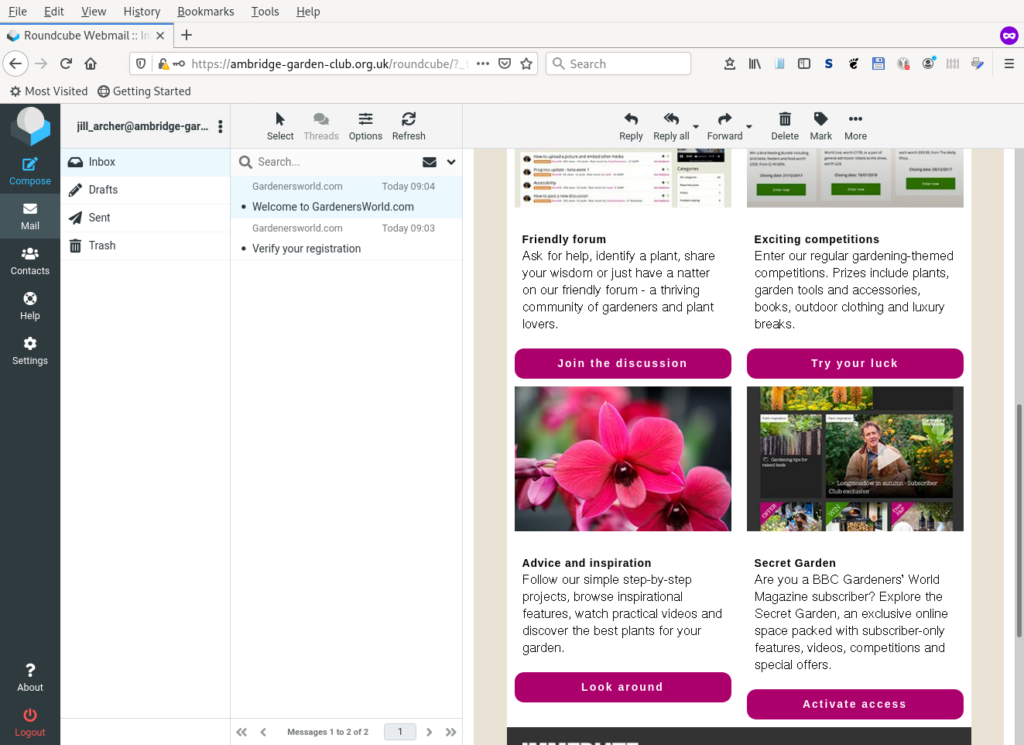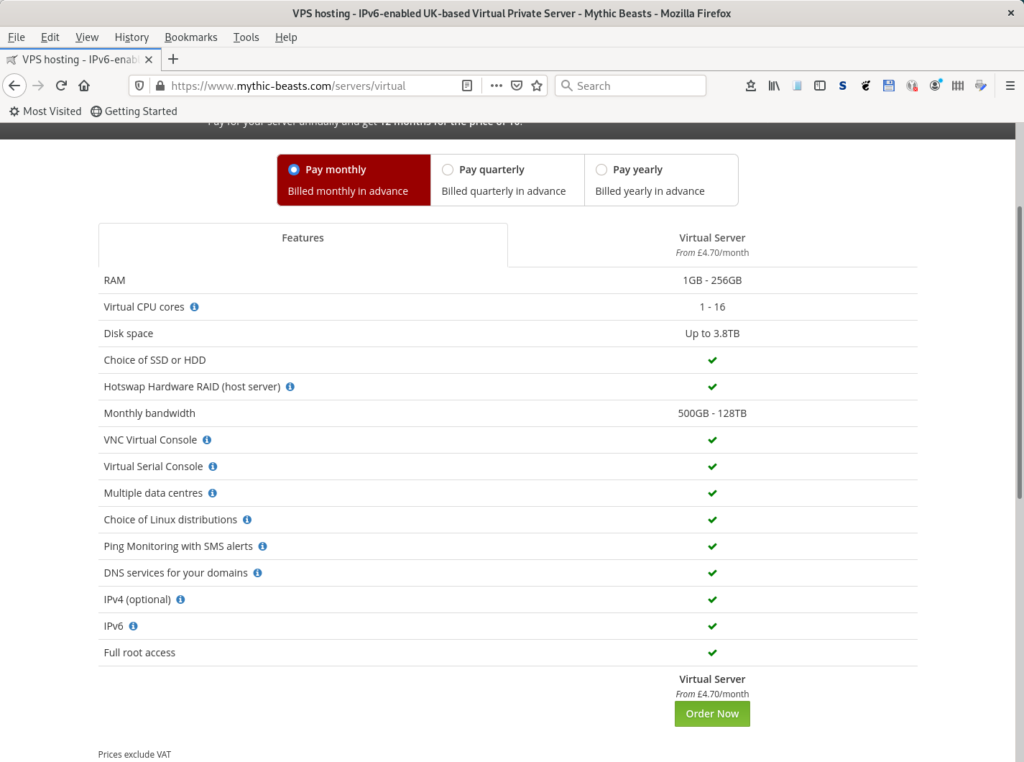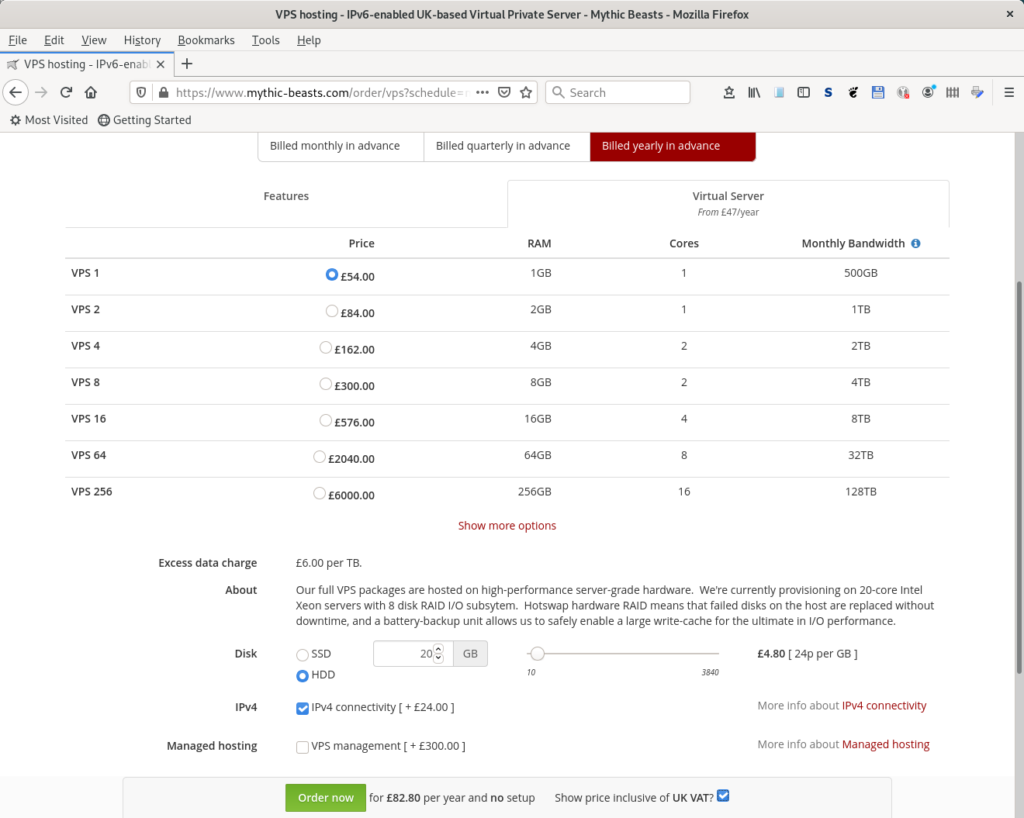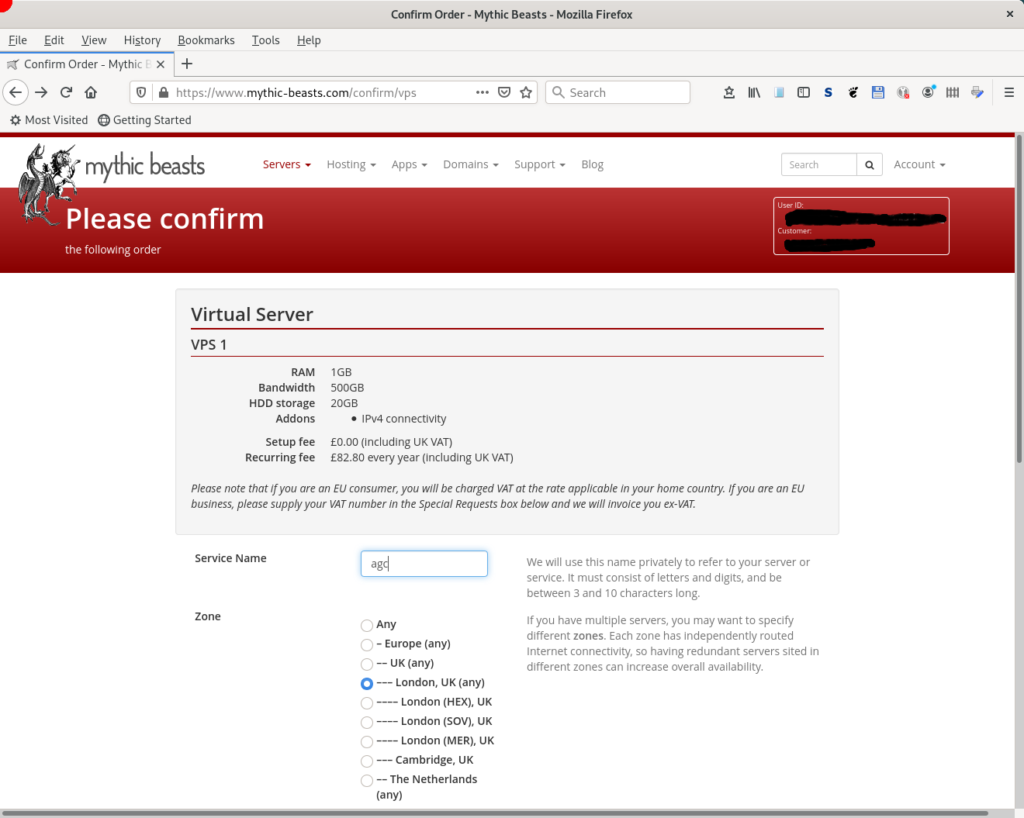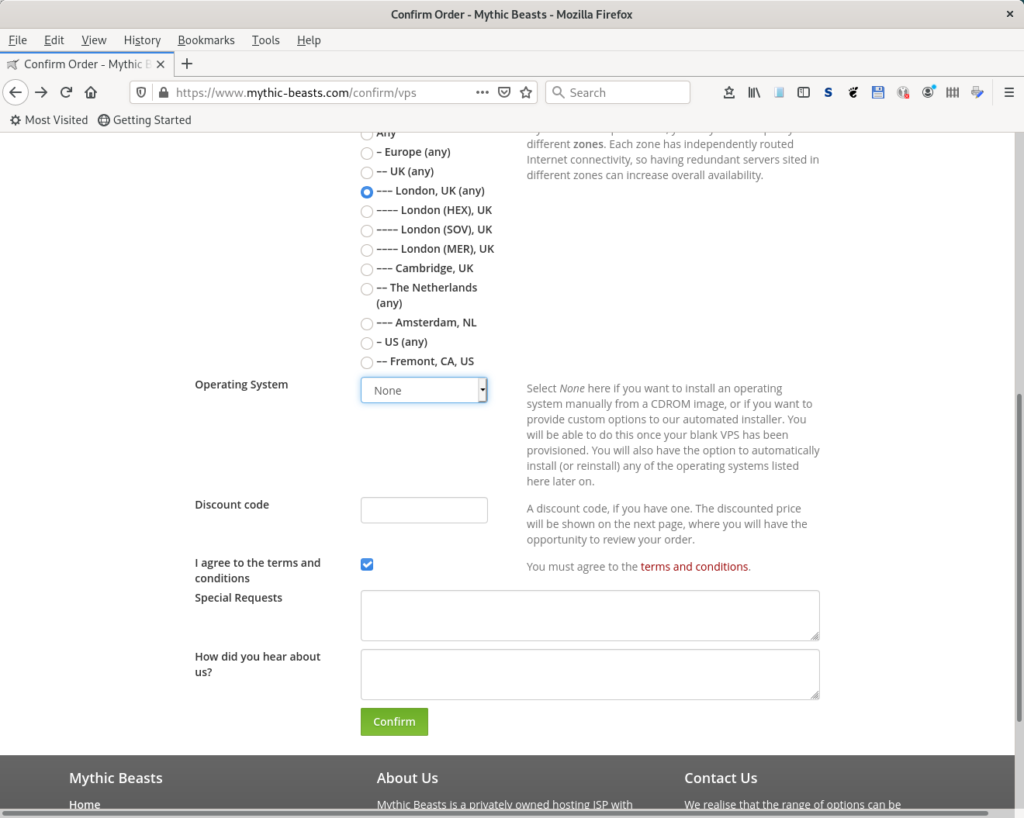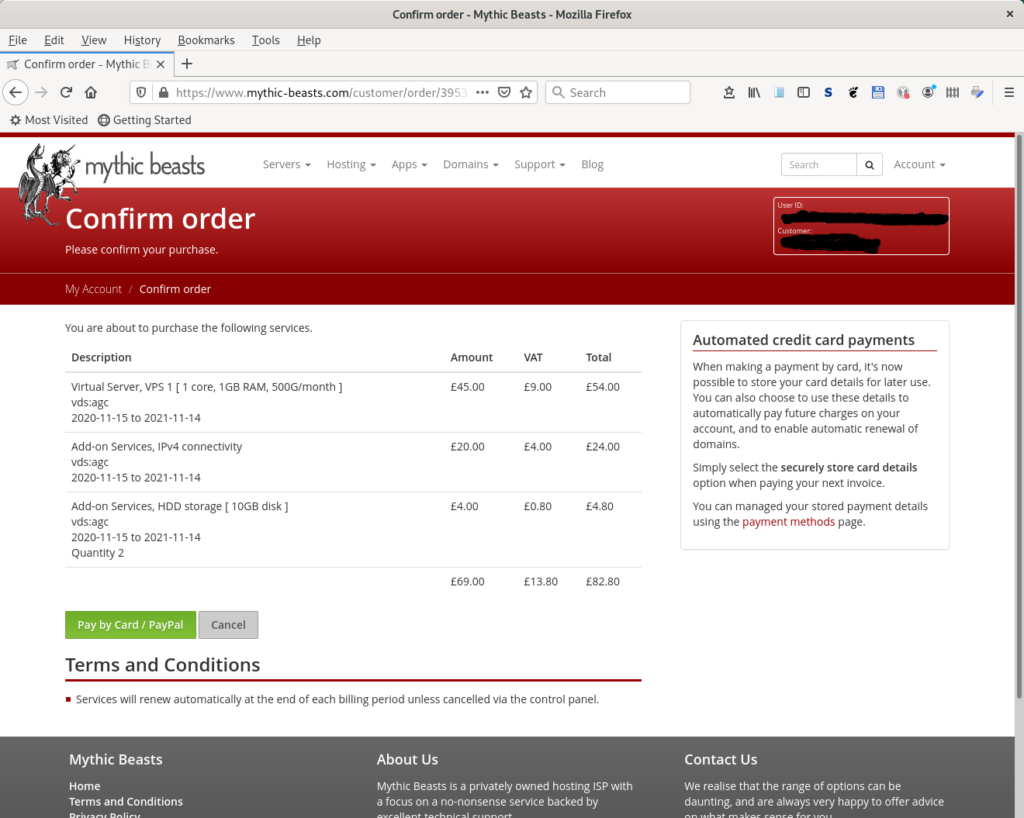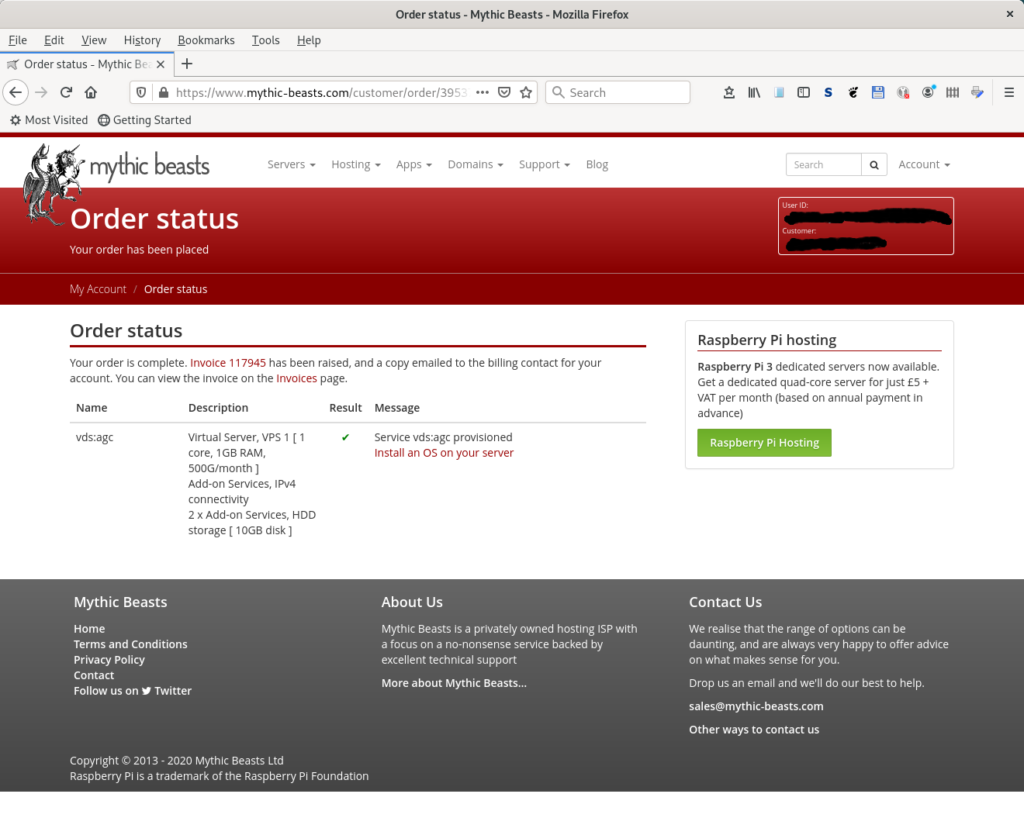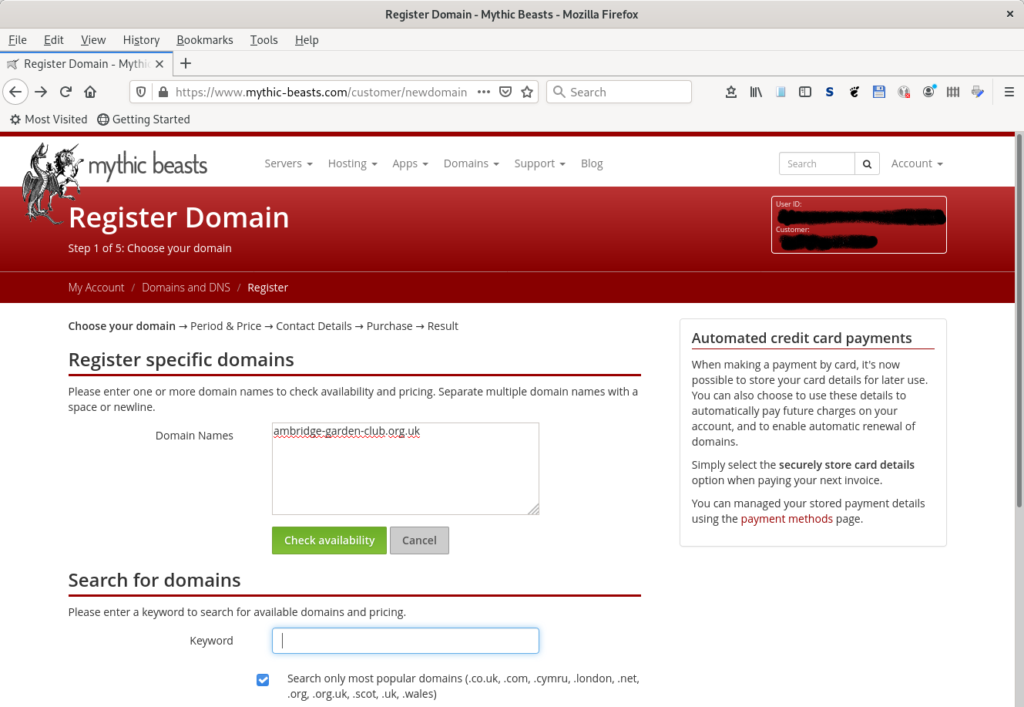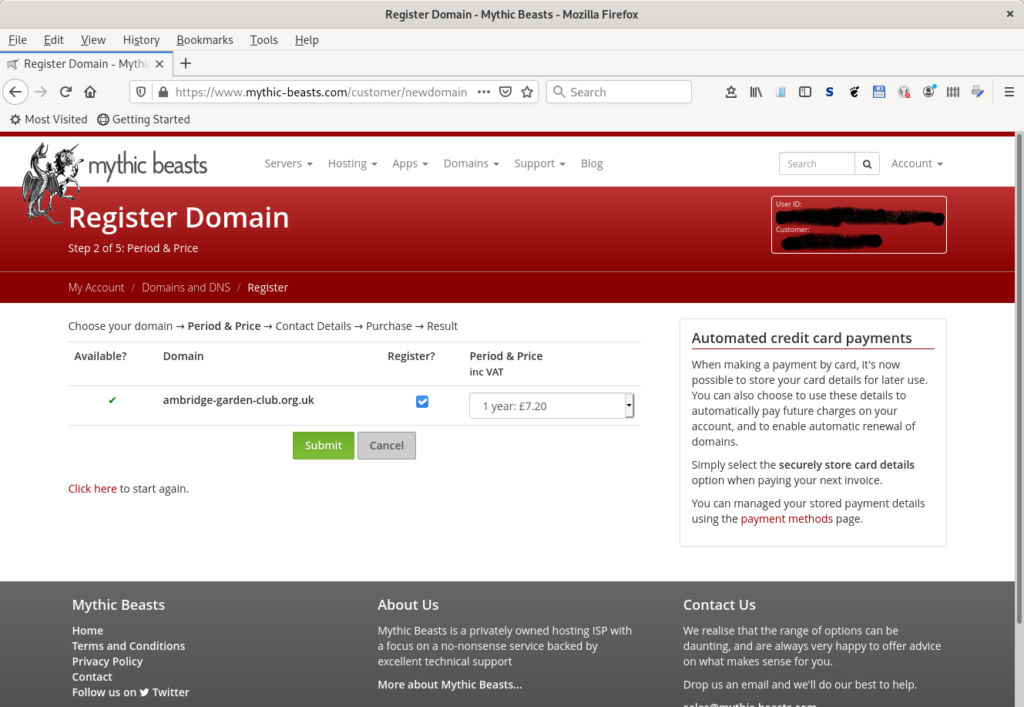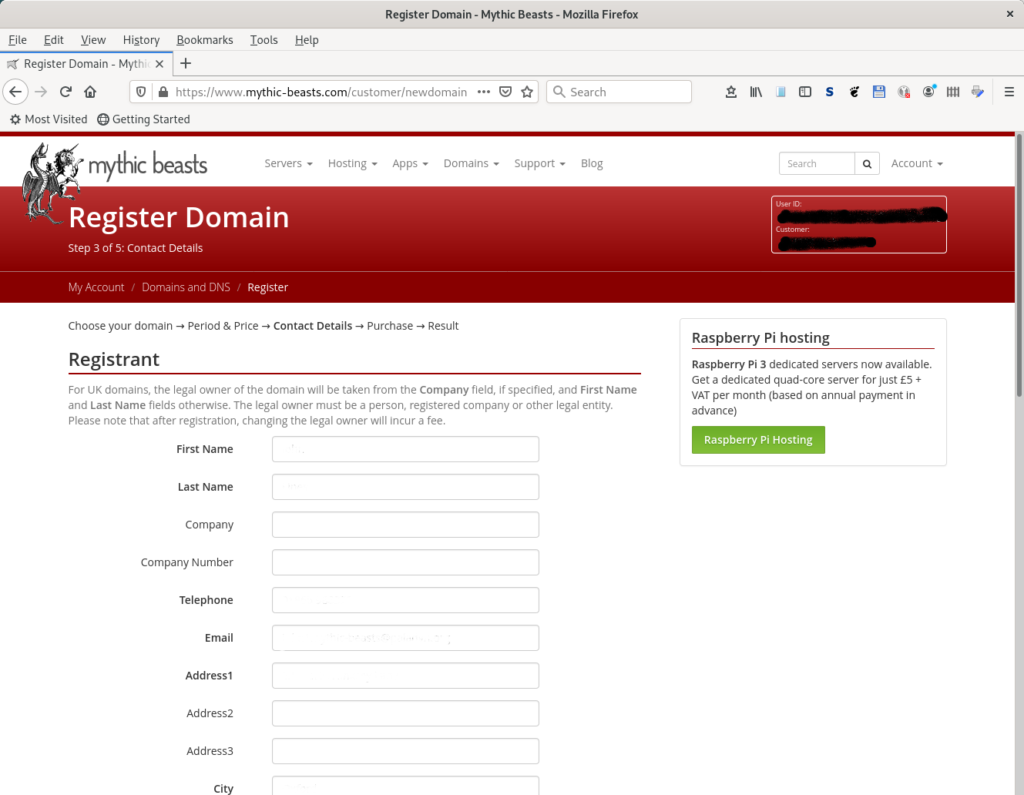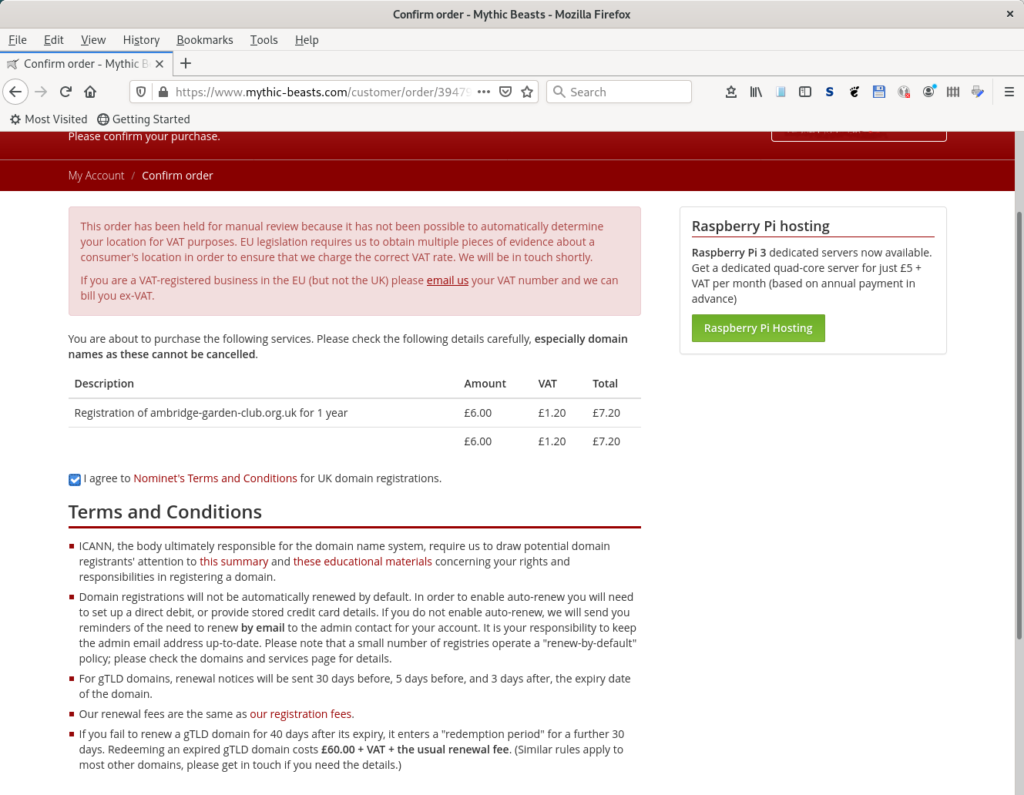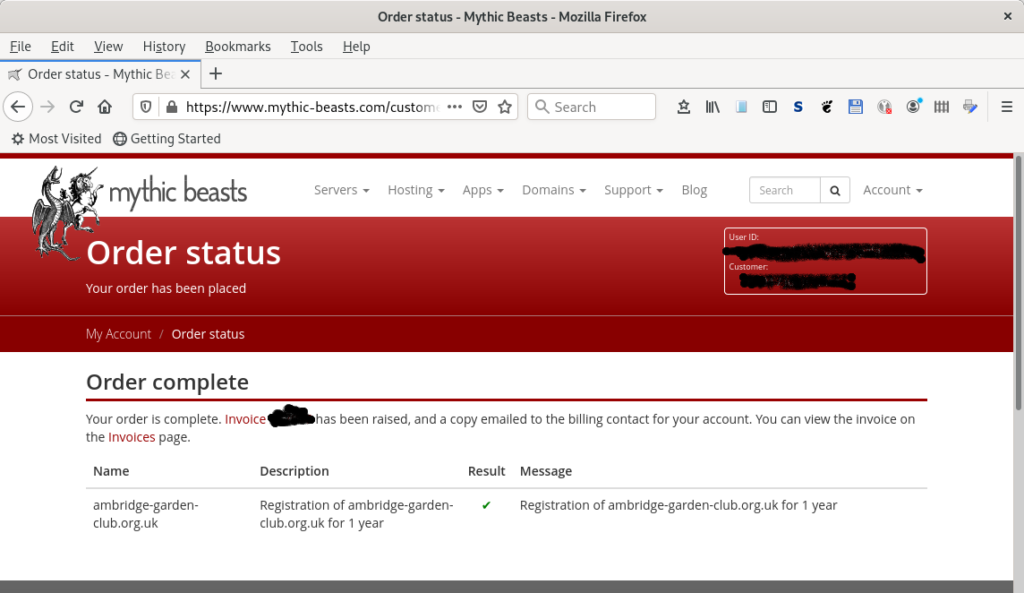The end goal of the Small Organisation Server project is a system which can provide everything needed for a small organisation, such as the Ambridge Garden Club, to have a presence on the Internet, with transparent accounting for how it is funded. The organisation should be able to own its data and systems. Although it will have to pay for hosting, as it should – there is no such thing as a free lunch – that hosting should be on a standard platform which does not lock the organisation into any particular vendor.
Simplicity of Administration
Small organisations should not need to have more than a minimal knowledge of computer administration.
Automatic updates
The software should update with the minimum attention needed from the administrator, who should not need to deal with a different update system for each component.
Modular
Not every small organisation will want every facility, for example a choir might want some form of music repository, and a garden club might not have a use for that.
Simple to use
Single identity and password
Federation and other organisations
Many people have multiple interests, and the system should not try to be the only one they use.
Stability
There is a clash between a desire to have the latest and greatest, and having a system which focuses on continuity. Although the organisation will be interested in keeping up to date with what it is interested in, e.g. gardening, that does not mean that it should need the very latest software.
Non-goals
All designs involve compromises, trade offs between, for example complexity and power. These are the choices I believe to be appropriate for the target types of Small Organisation.
Extreme privacy and security.
Hosting on a base you do not own, such as a hosted virtual computer (or even a real computer in a data centre) requires a level of trust in your host. There is a theoretical possibility, for example, that your hosting provider can read all of your data. The same applies to government level agencies, well funded criminal gangs etc. However such operations are expensive, and if that is a concern then you are in a different category of organisation.
Scaling to enormous sizes
Some software or systems do not scale to support thousands, or millions of people on the same platform. This causes them to be dismissed by people who want to be able to run huge systems. If you are expecting to grow to those sort of sizes you should be planning for some paid dedicated IT staff.
Applications – what can it do ?
The purpose of a Server is to serve, to serve the needs of the people who own it (Also true for the servers which belong to Facebook, Twitter, Google, Amazon etc). Here I put some of the things which might be useful to a Small Organisation on the Internet.
One of the key building blocks of the internet, and also often now used as a proxy for identity. It should be possible for members of the organisation to contact each other through email, and possibly at their choice have their emails forwarded to another system, or read to write emails from the server. This should be compliant with technical standards for mail authentication, such as DMARC, without needing the administrators to have to understand the technicalities. Ideally it should support filtering via Sieve, and reading and writing mail either through a web interface or standard email client programs.
Mailing lists
Sending emails to large numbers of recipients is a specialist area, particularly if there are doubts about whether they want the emails or not, and if the small organisation wants to do that type of thing they should pay a specialist. However for cases like contacting committee members, or possibly, for example a small charity to update previous donors (who are willing to be contacted) a mailing list manager can be useful.
Web pages
These are the public face of the organisation, and it should be relatively easy for those members of the organisation who represent it to update them. This will probably not be every member, and it should be clear, at least internally, who said what. Some form of content management system, such as WordPress or Drupal, integrated with the rest of the user administration should be possible.
Surveys
Some form of Survey software may prove useful, but it does not have to be Google Forms, or Microsoft Forms or SurveyMonkey – it may be well be that LimeSurvey will do the job.
Videos
If the organisation creates video content they should be able to decide whether to pay to host it, and allow others to view it without advertising, or to have someone else host it for ‘free’ paid for by advertising, which may not align with their ideals.
Note that, probably, this is not a large a risk as it might seem. Although a Temperance Society might in theory find it’s videos interrupted by advertisements for alcoholic beverages this would not be an effective use of the advertiser’s spend.
It is still an area where groups should have more choice about whether to host their own video content, and being able to run Peertube on their own server would allow this. This also allows the ability to publish content only available to members, should they want, and to live stream meetings.
Chat/Instant messaging
There are a number of options for this, depending on requirements. Some of them keep a permanent record of everything which has been said, such as Matrix, which might be wanted for important decisions, but overkill for general chat. The established standard in this area is XMPP, a Federated chat protocol which was the basis for Facebook Messenger and Google Talk before they decided to only allow it be used within their own communities. It can, but does not have too, keep a record of chats on the server.
Social media (microblogs)
Some organisations may want to produce small snippets of information, similar to Tweets, intended for public consumption. They may also want their members to be able to do this, but may want to distinguish between an official view and member’s opinions. Software based around the ActivityPub standard works for this.
Social networking
Some groups may want members to be able to create small amounts of content primarily for sharing with friends, for which something like Diaspora may be more appropriate.
Calendars and events
People will probably want to know when the next meeting is and similar needs. Organisations can host their own calendars and do not need to Google or Microsoft to host them, which means that they do not have to require their members to have Google or Microsoft accounts.
These calendars can be added to smartphones or integrated into calendar programs on a PC, such as Thunderbird or Outlook, which saves members from having to add them manually.
Video conferencing/virtual meetings
Organisations should be able, if they wish, to run meetings and conferencing on systems they own and operate themselves, using a system such as Jitsi, or BigBlueButton (more suitable for a larger organisation).
Status
At present all of the components exist, and someone with an interest in computers can put forward such a system, as has been done at least in part for Debian and Wikipedia, but there is a scarcity of information making it simple for someone without computer skills to put such a system together.
Systems like FreedomBox have a similar aim, but targeted towards individuals hosting on their own hardware. Yunohost is also based on Debian, and is the closest I can find to a Small Organisation Server. The aspect I don’t know about is it’s stability across Debian upgrades. It’s installation instructions are still based on Debian version 10, whereas Debian’s stable release is now version 11, and I know the upgrade was fairly painless. Their Use Cases for NGOs is quite similar to this post.
